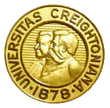|
April 11, 2002
Capitalism, Commerce
and the Corporation
By Edward W. Younkins, Acton Institute
GRAND
RAPIDS...(Mich.) --Capitalism is a system of voluntary relationships
within a legal framework that protects individual rights against
force, fraud, theft, and contract violations.
Morality is impossible unless one has the
freedom to choose between alternative actions without outside coercion.
Since capitalism is based on freedom of choice, it can promote morality
and character development, a key aspect of human flourishing.
Commerce in a free economy not only requires
but rewards virtuous behavior. Introduction An economic system such
as capitalism1 is a system of relationships and cannot be
moral or immoral in the sense that an individual can be only persons
are genuine moral agents.
However, an economic system can be moral
in its effects if it fosters the possibility of moral behavior among
individuals who act within it. Since the formation of such a system
is a human act, it follows that there is a moral imperative to create
the kind of political and economic system that permits the greatest
possibility for self-determination and moral agency.
All humans possess
natural rights endowed by the Creator and are morally obliged to
respect the rights of others.
The purpose of natural rights is to protect
individual autonomy and accountability. Natural rights impose a
negative obligation: the obligation not to interfere with another
person's liberty.
Since persons are ontologically equal and
independent, no one ought to harm another with respect to his or
her life, liberty, or possessions. It is illegitimate to use coercion
against a person who does not first undertake the use of force.
The role of government is to protect natural
human rights through the use of force, but only in response to those
who undermine such rights.
The natural right to political freedom
is a necessary social condition for the possibility of moral action.
Political freedom involves the idea of a protected private sphere
within which an individual can pursue freely chosen norms, actions,
and ends without the intervention of arbitrary coercion.
Natural rights, therefore, require a legal
system that provides the necessary conditions for the possibility
of human flourishing through freely chosen courses of action.
The common good should not be seen as a
single, determinate goal that all persons must work toward. Rather
it is the procedural implementation and protection of the natural
human right to liberty.
The natural right to liberty is a necessary
precondition for the possibility of human moral action. There can
be no morality without individual responsibility and no responsibility
without personal self-determination.
Responsible self-determination implies
prudence, rationality, honesty, self-control, productiveness, and
perseverance. In its absence, people will devalue liberty, character
qualities will diminish, and governmental institutions may become
the means for people to evade personal responsibility.
To provide the maximum degree of self-determination
for each individual, the state should be limited to maintaining
justice, police and defense forces, thereby protecting life, liberty,
and property.
Capitalism is a system in which individuals
are free to decide which goals to pursue. Within a capitalist system,
government's proper role is to enable people to pursue happiness.
The pursuit of happiness may be viewed as voluntary, purposive action.
Happiness is the positive, conscious, and
emotional experience associated with the use of a person's individual
human potentialities including one's talents, abilities, and virtues.
Happiness cannot be given to people; it must be attained through
one's own exertions. Dignity and self-esteem (including self-efficacy
and self-respect) must be acquired through one's own efforts - government
cannot supply more than the prerequisite conditions.4 No economic
system can make people virtuous, it can only provide the occasion
for virtue or vice. Morality requires the freedom to act immorally.
Capitalism, the system that maximizes human
freedom, cannot guarantee a moral society; however, freedom is a
necessary condition for a moral society. It is only when a person
has choice that he or she can be moral. Choice (i.e., free will)
is the foundation of virtue.
Capitalism is consistent with the fundamental
moral principles of life itself and, when compared to other economic
systems, is conducive to the use of free will, which makes moral
behavior possible.
To Exist Is to coexist. The sense of belonging
to freely chosen communities is an important constituent of human
flourishing and happiness. Although the individual is metaphysically
primary (and communities are secondary and derivative), communities
are fundamental because they assist us in reaching our potential.
The social bonds of affiliation are instrumentally
valuable in the satisfaction of non-social desires and are necessary
for one's personal flourishing. Since a large portion of a person's
potentialities can only be realized through association with other
human beings, personal flourishing requires a life with others -
family, friends, organizations, and business associates.
These associations are instrumentally valuable
in the satisfaction of non-social desires and are necessary for
a person's moral maturation including the sense of meaning and value
obtained from the realization of the consanguinity of living beings
that accompanies such affiliations.
Human beings are unique, ontologically
equal individuals who are not only born into a universal (i.e.,
human) community of shared mortality and accountability but because
of their nature have potentialities that can only be realized through
association with other human beings.
Equality involves the recognition of our common
human capacity to be free to associate with those of our own choosing.
People are responsible for choosing, creating, and entering relationships
that will enable them to flourish. If people are free, they will
naturally form communities and voluntary associations.
When communities are freely chosen, the
results are a sense of joint ownership, a coincidence of interest,
and a sense of belonging. Community identification and involvement
thus contri-butes to the happiness of the individual participants.
For example, the corporationunites people
in a common goal and gives them a sense of meaning and purpose.
The cooperative nature of the corporation illustrates that capitalism
is far from the anarchic individualism that critics have claimed
it to be. In fact, it can be argued that capitalism's antidote for
social dislocation is the corporation, in which mobile workers are
organized into teams of task-oriented colleagues.
The corporation is a community whose social
purposes include: making a profit; creating new wealth; providing
desirable goods and services; providing private moral and material
support of activities of civil society; and establishing within
the firm a sense of community and respect for the dignity of persons.
Work is at the root of a meaningful life,
the path to individual independence, and a necessity for human survival
and flourishing. It is also the distinctive means by which human
beings forge their identity as rational, goaldirected beings.
Productive work is the process by which
humans control their existence by acquiring knowledge and translating
their ideas and values into physical form. Work is a synthesizing
activity, involving both cognitive and physical aspects, and helps
to actualize specifically human abilities and desires.
Work is needed not only for sustenance
but also for psychological and spiritual well-being - it is the
means by which a person can maintain an active mind, attain purposes,
and follow a goal-directed path. Since humans must work to obtain
material well-being, employment is a major factor in most peoples
lives.
Work is integral to human flourishing and
happiness. Each worker is a rational being who is naturally motivated
to pursue his own happiness, able to discern opportunities and barriers
to his happiness, and is cognizant that happiness is, for the most
part, dependent upon his own efforts.
There is an inextricable link between reason,
self-interest, productive work, goal achievement, human flourishing,
and happiness. Work is a concrete expression of rationality.
Every productive human activity originates
with mental effort and involves the translation of thought into
a definite form. Every creative work and discovery contributes to
human existence by increasing one's understanding of reality or
by making human life longer, more secure, or more pleasurable. Productiveness
comprises an important existential content of virtue and is a moral
responsibility of every person.
At issue is not one's field of work, the
level to which one rises, or how much one accomplishes.
Since people differ with respect to their
intelligence, talents, and circumstances, the moral issue becomes
how one addresses his or her work given the person's potentialities
and concrete circumstances.
A productive life not only builds character,
it also requires virtuous work habits and adherence to basic ethical
norms. There are many virtues associated with work including perseverance,
patience, conscientiousness, self-control, obedience, cooperation,
longanimity, constancy, honesty, integrity, fairness, and justice.
Virtuous workers are energetic, productive
workers who (1) think objectively, rationally, and logically; (2)
focus on reality; (3) ask clear, pertinent questions and listen
carefully; (4) use time efficiently and effectively; (5) search
for facts in their total context before making judgments; (6) organize
one's life and work toward worthwhile endeavors; and (7) set value-producing
goals and strive to accomplish them.
People can act morally or immorally in
a capitalistic system just as they can in any other economic system.
However, capitalism does possess a number of positive and morality-promoting
characteristics that are absent or weak in other economic systems.
Capitalism provides freedom of choice,
fosters cooperation and mutual adjustment, respects the dignity
and individuality of each person, provides accountability, limits
and disperses power, promotes innovation and progress, and creates
wealth for the masses.
Human flourishing, however, requires more
than material wealth. Prosperity is a condition that enables each
individual the opportunity to develop his potential and find happiness
through the cultivation of his talents, abilities, and virtues.
Capitalism, the best system for wealth
creation, permits indivi-duals to spend less time on physical concerns
thus giving them the time to turn to higher level pursuits of happiness
such as religious pursuits, education, love, creative and fulfilling
work, character development, and community building. Happiness is
related to one's self-esteem and includes both a person's self-efficacy
and self-respect.
Self-respect, in turn, stems from a person's
character development. By allowing for individual autonomy and self-determination,
capitalism gives each person the chance to develop his or her character,
the internal source of external behavior. Self-direction involves
the use of one's reason and is a necessary feature of human flourishing.
Morality is a matter of character and the free exercise of will
and judgment. The virtues are moral excellences—the lack of which
diminishes self-respect.
In a free society an individual must develop
and earn his personal character. When a person deve-lops a good
personal character he will be happier, more satisfied, and more
self-actualized.
When commerce is
conducted within a capitalistic society, virtue is promoted. The
pursuit of profit reflects the presence of many of the virtues.
The free market rewards polite, accommodating, tolerant, open, honest,
realistic, trustworthy, discerning, creative, fair-dealing businessmen.
In the long run, profitable businesses tend to be populated by good
people, who, at a minimum, conduct business in accord with basic
ethical principles calling for honesty, respect for persons and
property, fidelity to commitments, justice, and fairness.
At the very least, a businessman is required
to refrain from any rights-infringing activity. He should be honest
and just in his dealings with others. For example, the most deserving
employees should be promoted and the best bidders should be awarded
contracts. Furthermore, a manager should not support governmental
actions such as price supports, tariffs, quotas, and subsidies even
though such policies may result in higher profits for his own company.
To do so would involve the use of coercion,
one step removed. To support such actions that violate natural rights
is to undermine the principles of the free society on which business
depends. Business people have incentives to do the right thing.
Lying and cheating may ruin the company's image and reputation.
Mistreating workers will lead to decreased productivity, absenteeism,
grievances, and employee turnover.
Unsafe working conditions will lead to
higher wage demands. Misinforming customers or giving them less
than they bargained for will lead to reduced sales. Ignoring product
safety could lead to accidents, lawsuits, and decreased sales. Taking
advantage of suppliers may result in material shortages and possible
shutdowns. Screening out potential employees because of race, gender,
or other group characteristics means reducing the firm's chances
of hiring the best workers. Excluding customers because of their
group identity means losing sales to competitors.
Successful businesses seek out talented
and virtuous managers who bring out the best in others, help employees
develop and improve through training and supervision, provide advice
and support, share values with others in the firm, and help workers
recognize the wholeness of their lives.
|
![]()
![]()
![]()






